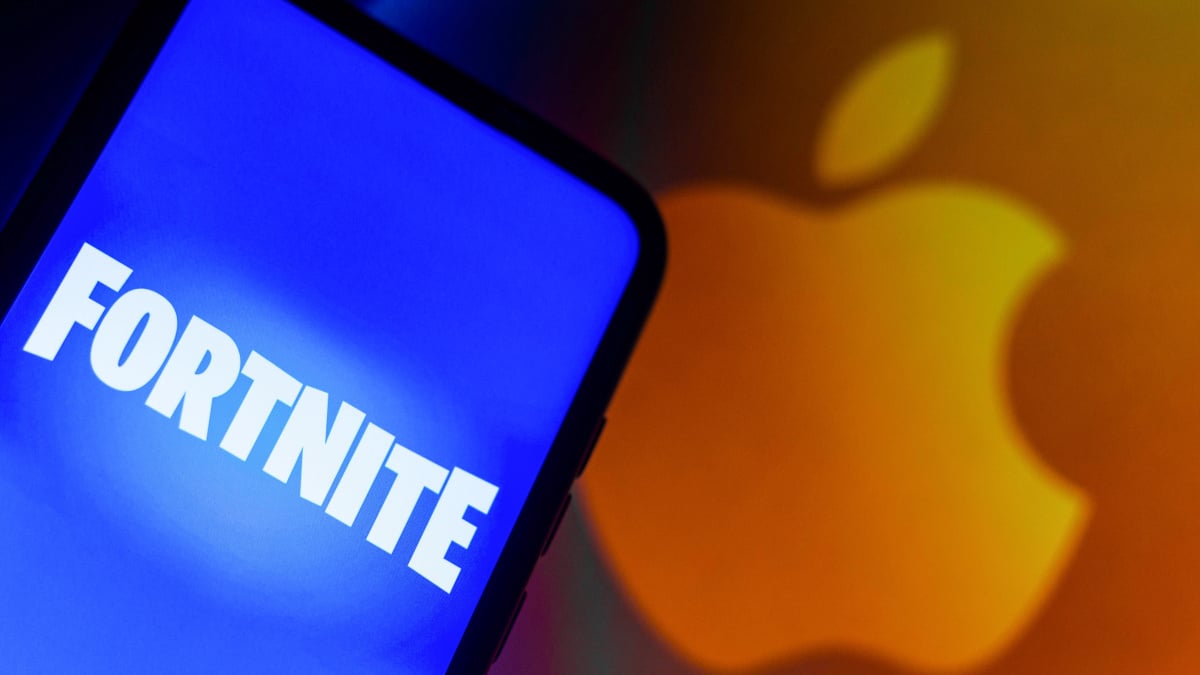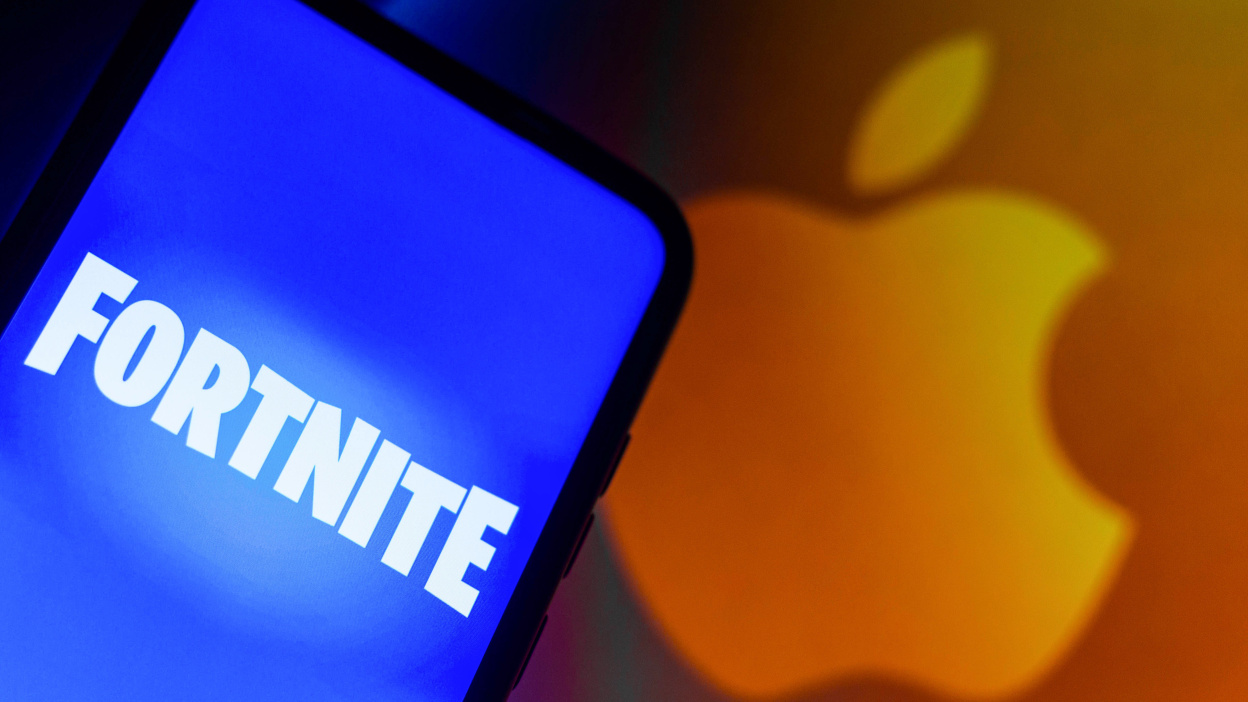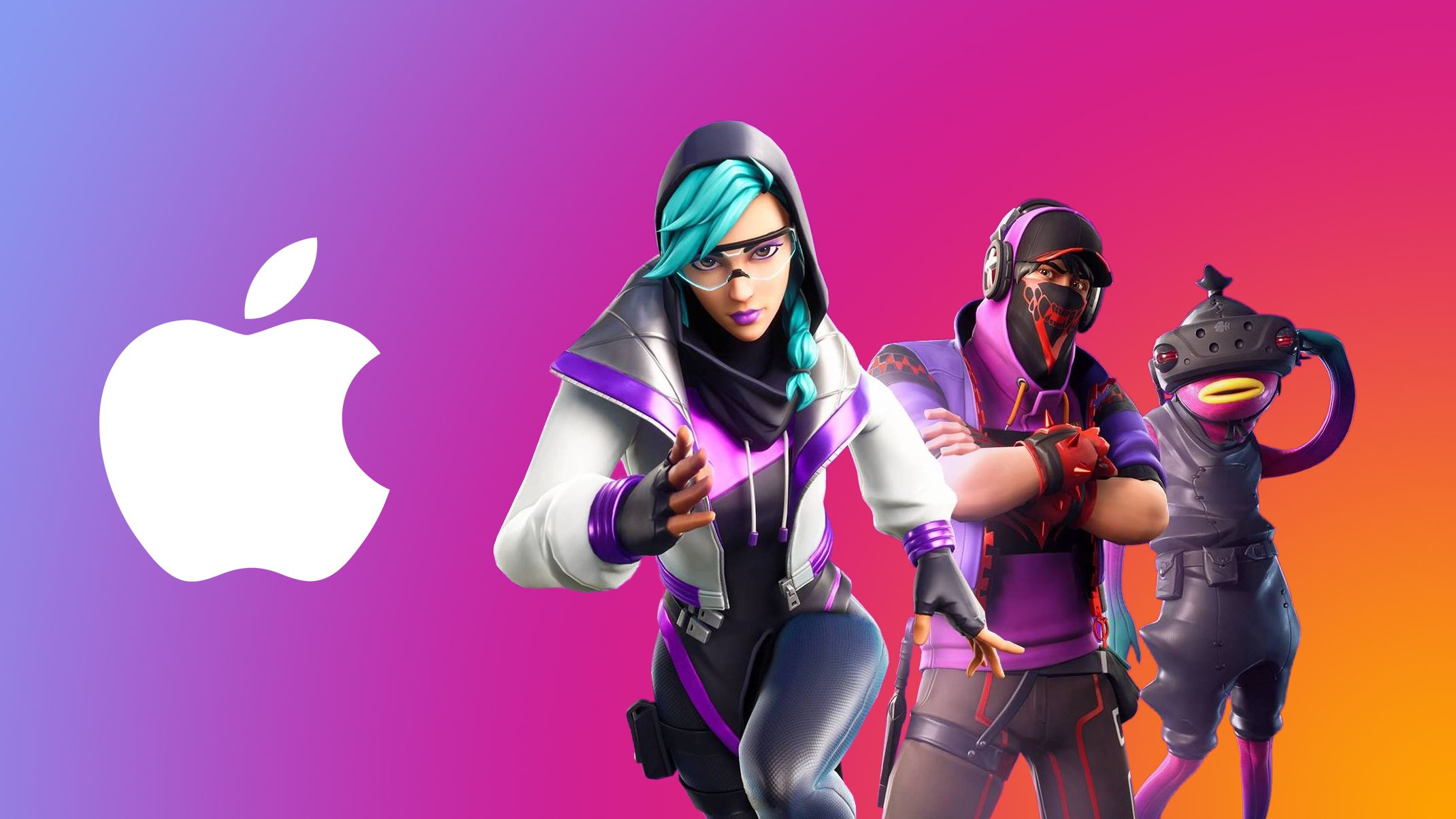## Fortnite Falls From Grace: Epic Games Accuses Apple of Blocking Its Beloved Battle Royale
The digital realm is shaken as Epic Games, the creators of the global phenomenon Fortnite, allege Apple has pulled the plug on their iconic Battle Royale, leaving millions of iOS players stranded. The Wall Street Journal reports a bitter clash between the tech giants, with Epic claiming Apple’s iron grip on its App Store prevented Fortnite’s latest update from reaching players. This isn’t just a simple app removal; it’s a battle royale of epic proportions, pitting innovation against control and raising serious questions about the future of mobile gaming.

The 2020 Fortnite Removal
The events leading to Fortnite’s removal from the App Store in 2020 stemmed from Epic Games’ implementation of an alternative payment system within the game. In a move that directly challenged Apple’s in-app purchase policies, Epic introduced a direct payment option, allowing players to purchase V-Bucks, Fortnite’s in-game currency, at a 20% discount compared to Apple’s standard 30% cut. This direct payment system circumvented Apple’s App Store payment processing, effectively encroaching on Apple’s revenue stream.
The move was met with swift action from Apple, who swiftly removed Fortnite from the App Store, citing a violation of their App Store Review Guidelines. This action triggered a heated legal battle between the two tech giants, escalating into a broader debate surrounding the control and revenue sharing dynamics within the mobile gaming ecosystem.
The Legal Battle
The ensuing legal battle between Epic Games and Apple was a landmark case, with both companies presenting compelling arguments before the court. Epic Games argued that Apple’s 30% commission on in-app purchases constituted an anti-competitive monopoly, stifling innovation and limiting consumer choice. They emphasized the need for a more open and competitive app marketplace, allowing developers greater control over their pricing and distribution.
Apple, on the other hand, defended its App Store policies, asserting that the 30% commission was necessary to maintain the security and quality of its platform. They argued that the App Store provided a safe and curated environment for users, and the commission fee helped fund the development and maintenance of this ecosystem. Apple also highlighted the significant benefits developers receive through the App Store, including access to a vast user base, marketing support, and a secure payment system.

Key Arguments
- Epic Games’ Arguments:
- Apple’s App Store operates as an illegal monopoly, controlling the distribution of apps and imposing unfair fees on developers.
- The 30% commission is excessive and stifles innovation by limiting developers’ revenue potential.
- Apple’s strict control over app distribution and payments restricts consumer choice and hinders competition.
- Apple’s Arguments:
- The App Store provides a secure and curated platform for users, ensuring the quality and safety of apps.
- The 30% commission is necessary to fund the development, maintenance, and security of the App Store ecosystem.
- Apple provides developers with valuable resources and support, including a vast user base, marketing assistance, and a secure payment system.
The Ongoing Dispute
Despite the legal proceedings, the tension between Epic Games and Apple persists, highlighting the fundamental issues of competition, control, and revenue sharing within the mobile gaming industry. The core of the dispute lies in Apple’s control over the App Store, which serves as the primary gateway for distributing apps to iOS devices. Apple’s stringent policies and commission structure have been criticized by developers, who argue that they limit innovation and unfairly profit from the success of apps.
The arrival of the Digital Markets Act (DMA) in the European Union has further intensified this conflict. The DMA mandates that tech giants like Apple allow “alternative marketplaces” to distribute apps on iOS devices, challenging Apple’s longstanding monopoly. This development has prompted Epic Games to attempt a return to the iOS platform through the alternative marketplace route, leading to the recent termination of their developer account.

Implications of the DMA
The DMA’s implications for the mobile gaming landscape are significant. It potentially paves the way for a more open and competitive app ecosystem on iOS, allowing developers greater flexibility in pricing, distribution, and payment processing. This could lead to a wider variety of apps and gaming experiences for iOS users, as well as increased revenue opportunities for developers.
However, it remains to be seen how Apple will fully comply with the DMA’s requirements. The recent termination of Epic Games’ developer account suggests that Apple may be resistant to relinquishing its control over the App Store. This ongoing conflict highlights the complex interplay between tech giants, developers, and consumers in the mobile gaming world, with the DMA serving as a catalyst for a potential paradigm shift.

Implications for Gamers and Developers
The legal battle and ongoing dispute between Epic Games and Apple have far-reaching implications for gamers and developers alike. The outcome of this conflict could shape the future of mobile gaming, influencing app availability, pricing, and the overall competitive landscape.

Fortnite’s Future on iOS
The termination of Epic Games’ developer account casts a significant shadow over Fortnite’s potential return to iOS in Europe. This move effectively blocks Epic Games from launching the Epic Games Store and distributing Fortnite through alternative marketplaces on iOS. While the DMA compels Apple to allow alternative app stores, the company appears determined to circumvent this regulation through tactics like account termination. The future of Fortnite on iOS remains uncertain, with the outcome hinging on further legal challenges and Apple’s willingness to comply with the DMA.
The Alternative App Store Landscape
Epic Games’ attempts to circumvent Apple’s App Store through alternative marketplaces highlight the growing interest in diversifying app distribution channels. The DMA’s mandate for “alternative marketplaces” opens doors for new players and potentially empowers developers with greater control over their apps and revenue. This could lead to a more fragmented app ecosystem, with users having access to a wider range of apps and developers enjoying more favorable terms.
However, the success of alternative app stores depends on several factors, including user adoption, developer support, and Apple’s continued resistance. Overcoming Apple’s entrenched control over the iOS platform will require a concerted effort from developers, regulators, and consumers alike.
A Shift in Power Dynamics
The ongoing conflict between Epic Games and Apple, coupled with the arrival of the DMA, signifies a potential shift in power dynamics within the mobile gaming industry. The traditional dominance of platform providers like Apple and Google is being challenged by developers seeking greater autonomy and control. This shift could lead to a more balanced and competitive ecosystem, ultimately benefiting both developers and gamers.
Conclusion
So, there you have it. Epic Games claims Apple pulled the plug on Fortnite’s iOS existence, citing a blatant disregard for their own App Store rules. Epic, in turn, accuses Apple of stifling competition and exploiting its platform dominance. This high-stakes battle, playing out in the public eye, revolves around the very core of the mobile gaming ecosystem: control, revenue, and the future of app distribution.
The implications are vast. If Epic prevails, it could usher in an era of greater freedom for developers, potentially shaking the foundations of Apple’s tightly controlled App Store. Imagine a world where alternative app stores flourish, offering gamers more choices and developers a fairer share. Conversely, an Apple victory might solidify its grip on the iOS market, potentially hindering innovation and driving up prices for consumers. This clash isn’t just about Fortnite; it’s a David vs. Goliath story with the fate of mobile gaming hanging in the balance.
The future of gaming on our phones hangs in the balance. Will we see a more open and competitive landscape, or will Apple’s walled garden remain impenetrable? Only time will tell, but one thing is certain: the fight for control of the mobile gaming world has just begun.